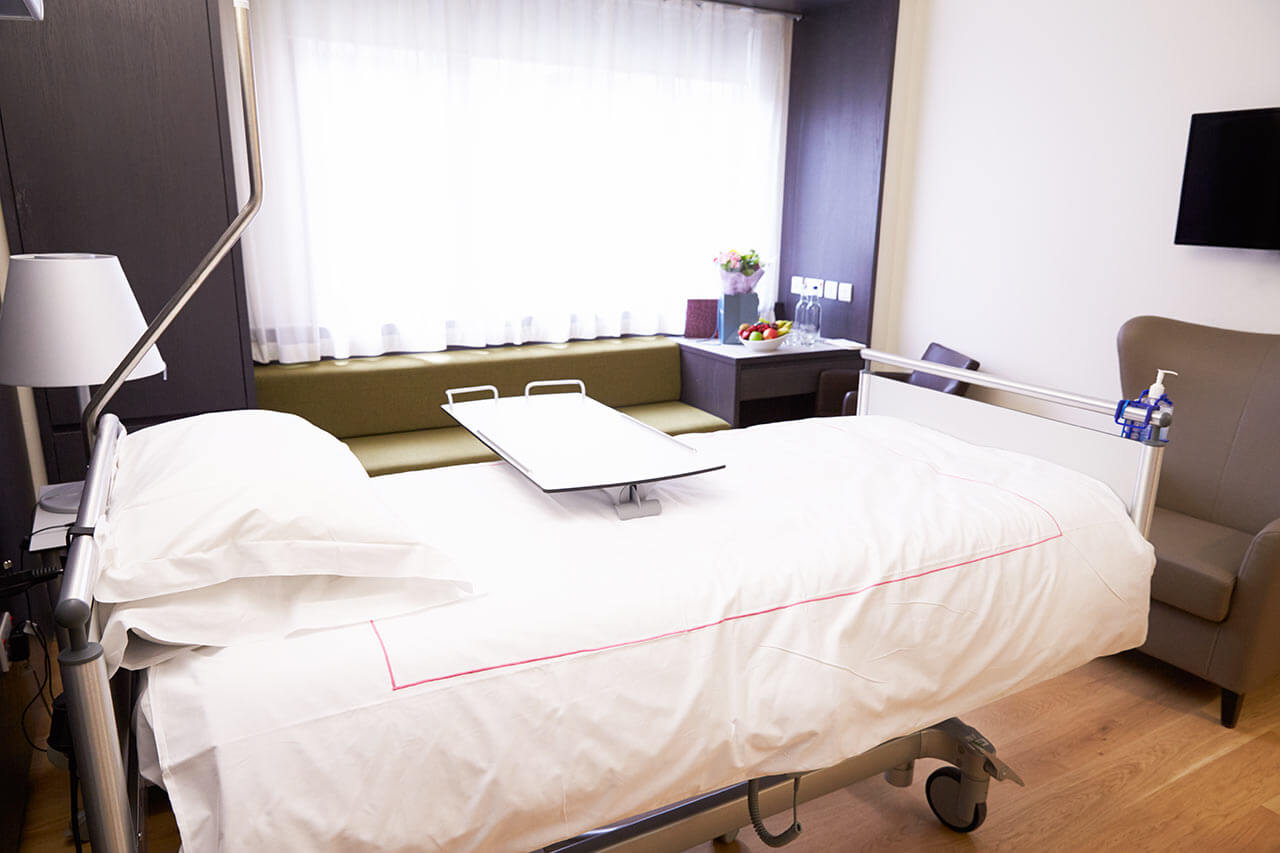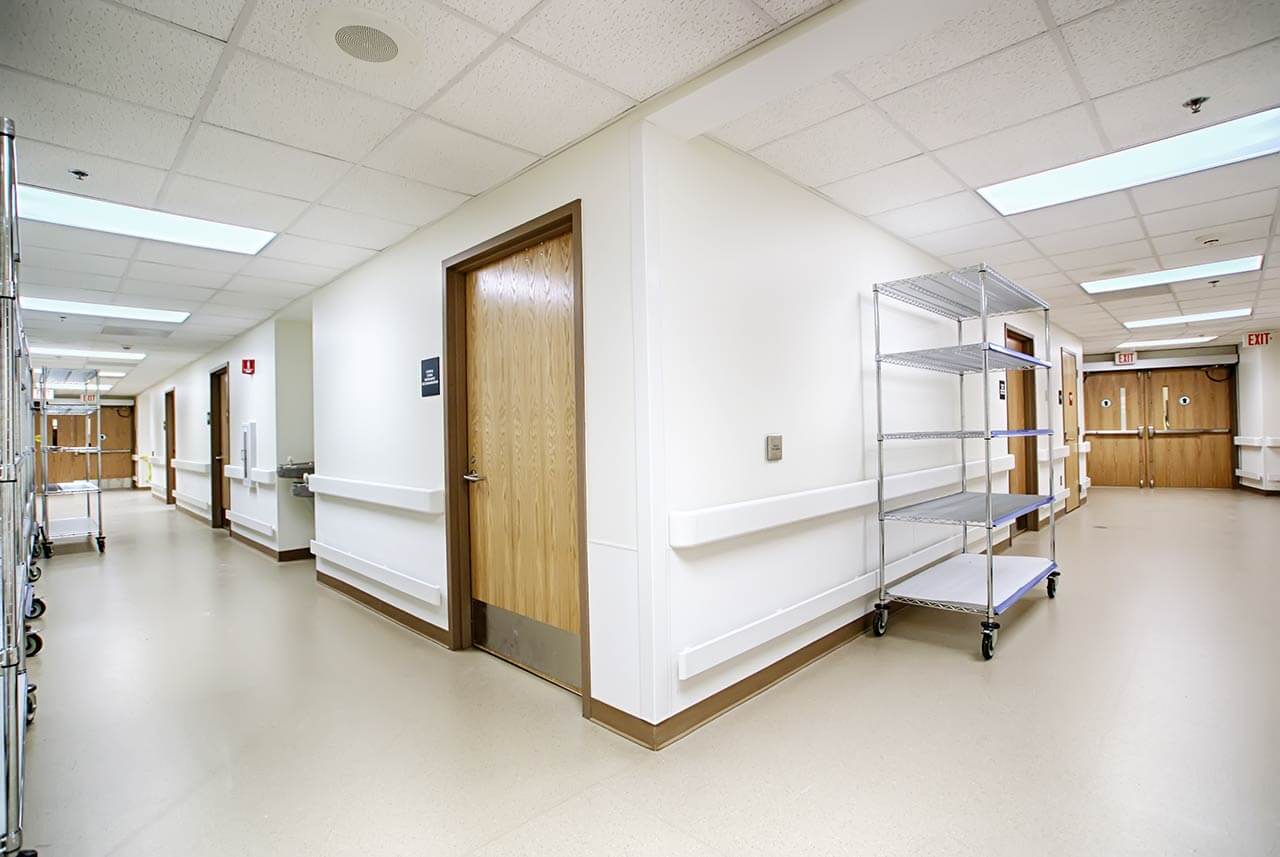
About the Department of da Vinci Robotic Surgery at Hospital Friedrichshafen
The Department of da Vinci Robotic Surgery at the Hospital Friedrichshafen offers the full range of minimally invasive surgical procedures using state-of-the-art da Vinci Surgical System. The team of the department's surgeons specializes in robot-assisted surgery to treat rectal cancer, stomach cancer, prostate cancer, malignant and benign tumors of the female reproductive system and other pathologies. The Head Physician of the department is PD Dr. med. Thorsten Lehmann.
The department's medical team has been performing robot-assisted surgical interventions since 2011, and therefore has vast clinical experience. Since September 2016, the very latest da Vinci® Xi robotic system has been widely used in the department's clinical practice. The device allows the doctors to perform operations with the highest accuracy, minimizing damage to the healthy tissues surrounding the tumor. All the department's surgeons underwent specialized training in robotic surgery, so the patients are guaranteed excellent quality of surgical treatment.
The da Vinci Xi robot-assisted surgical system consists of two main units – the surgeon's console with multifunctional manipulators, with the help of which the doctor controls the "hands" of the robot, and the robot itself, which is an executive device. One of the robot's "manipulator slaves" holds a video camera, which transmits 3D HD images of the operating field, while the others hold surgical instruments. When performing the operation, the surgeon sits at a convenient control panel, which makes it possible to see the operating field in 3D mode with the possibility of 12x zoom. He uses special joysticks to control the instruments. With the help of joysticks with supersensitive mechanisms, the surgeon gives commands to the robot, setting the direction and speed of movement, while the "slave manipulators" with surgical instruments copy and reproduce the movements of the surgeon's hands and fingers. Everything proceeds in real time.
The minimally invasive intervention using the da Vinci Xi robot-assisted surgical system requires only 5-6 incisions from 5 to 12 millimeters in length, while classic interventions are performed through a large abdominal wall incision. Thus, the main advantage of robot-assisted surgery for the patient is minimal tissue trauma and blood loss, which significantly reduces the postoperative recovery period. In addition, the patient experiences much less pronounced postoperative pain. In addition, the operation does not leave any large scars on the skin. It is noteworthy that during robotic interventions on the genitourinary system in men, the surgeons manage to preserve the patient's ability to control urination and erectile function.
In addition, robotic surgery has several advantages for the surgeon. The 3D image of the surgical field in HD quality and its 12x zoom allow the specialist to clearly see all the anatomical structures of the surgical field. The robotic surgeon ensures a flawless precision of the surgical manipulations, while the doctor's hand can tremble due to anxiety or heavy workload. In addition, the robotic surgeon has a huge range of motion, so it can fully imitate the movements of the human hands and wrists.
The department specializes in robot-assisted interventions for the following pathologies:
- General surgery
- Rectal cancer
- Stomach cancer
- Urology
- Prostate cancer
- Benign prostatic hyperplasia (in the case when it is impossible to form a surgical access through the urethra)
- Bladder diverticulum
- Kidney cancer (if organ-preserving surgery is possible)
- Renal pelvis outflow stenosis, including in young children
- Bladder cancer (if necessary, bladder and prostate removal)
- Gynecology
- Uterine diseases requiring uterine resection (total and subtotal hysterectomy)
- Uterine fibroids
- Endometriosis
- Ovarian disease (for example, ovarian transposition)
- Urogynecological diseases
- Genitourinary traumatic injuries
- Uterine cancer
- Cervical cancer
- Endometrial cancer
- Ovarian tumor staging
- Radical lymphadenectomy
- Sentinel lymph node biopsy
- Other diseases and surgical interventions
Curriculum vitae
University Education, Postgraduate Training and Professional Career
- Since 2011 Head of the Department of da Vinci Robotic Surgery at the Hospital Friedrichshafen.
- Since 07.2010 Head of the Department of General, Abdominal and Vascular Surgery at the Hospital Friedrichshafen.
- 2005 - 2006 Senior Physician, Department of General and Abdominal Surgery, Helios Dr. Horst Schmidt Hospital Wiesbaden.
- 2007 - 2010 Senior Physician, Department of General, Abdominal and Transplant Surgery, University Hospital Tuebingen.
- 05.2008 Managing Senior Physician.
- 09.2008 Additional qualification in Abdominal Surgery.
- 10.2004 Habilitation in General Surgery.
- 2003 - 2005 Fellow, Department of General, Abdominal and Transplant Surgery, Charite University Hospital Berlin.
- 10.2002 Board certification in Surgery, Medical Association of Baden-Württemberg.
- 2001 - 2003 Assistant Physician, Department of General Surgery and Traumatology, University Hospital Heidelberg.
- 2000 - 2001 Assistant Physician, Department of General Surgery, Traumatology and Vascular Surgery, University Hospital Heidelberg.
- 1998 - 2000 Research Fellow, Laboratory of Hepatobiology and Toxicology, Department of Pharmacology, University of North Carolina at Chapel Hill, USA.
- 1997 -1998 Assistant Physician, Department of General Surgery, Traumatology and Vascular Surgery, University Hospital Heidelberg.
- 1996 - 1997 Assistant Physician, Department of Orthopedics, University Hospital Heidelberg.
- 1995 - 1996 Assistant Physician, Department of General Surgery, Traumatology and Vascular Surgery, University Hospital Heidelberg.
- 1993 - 1994 Internship, Department of General Surgery, Traumatology and Vascular Surgery, University Hospital Heidelberg.
- 1985 - 1992 Study of Human Medicine, Faculty of Medicine, Heidelberg University.
Photo: (c) Klinikum Friedrichshafen





